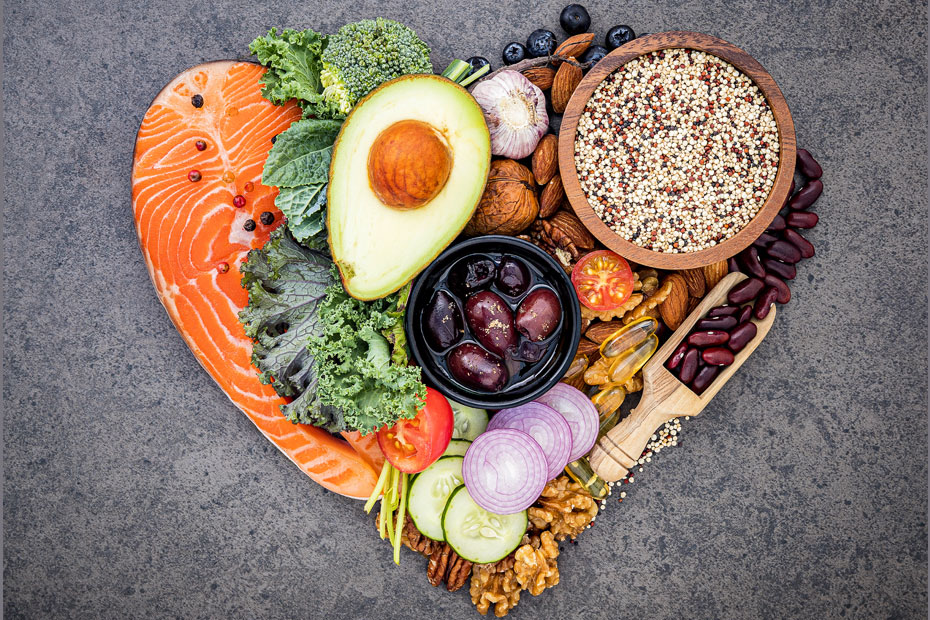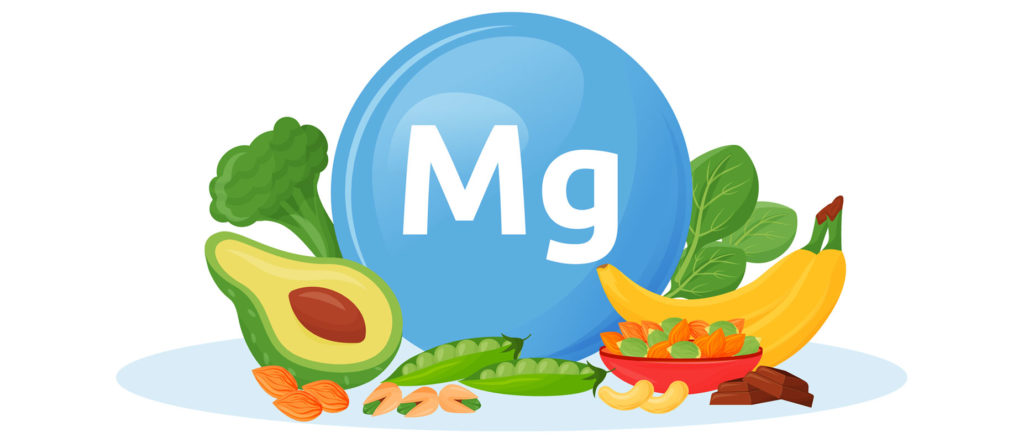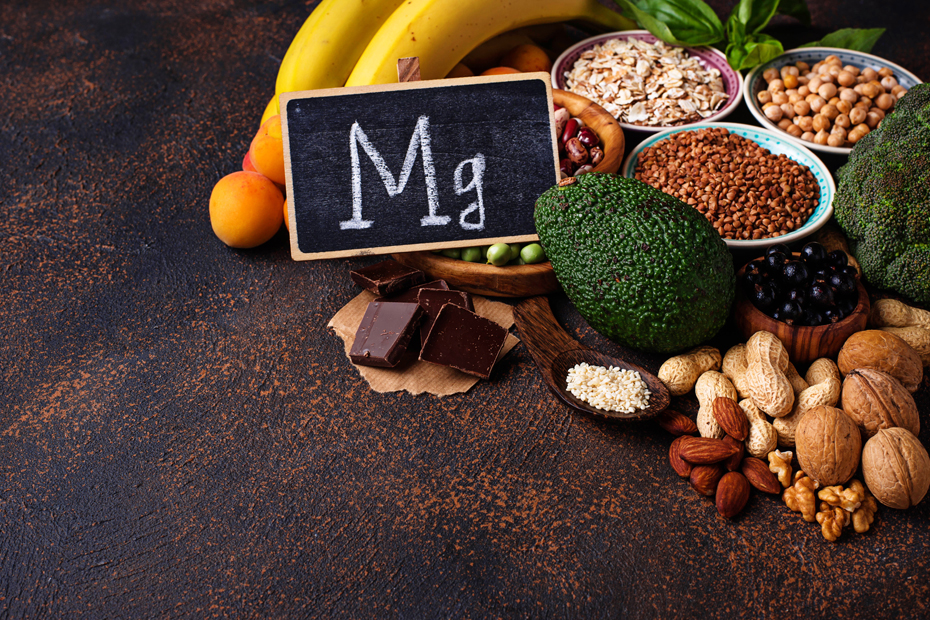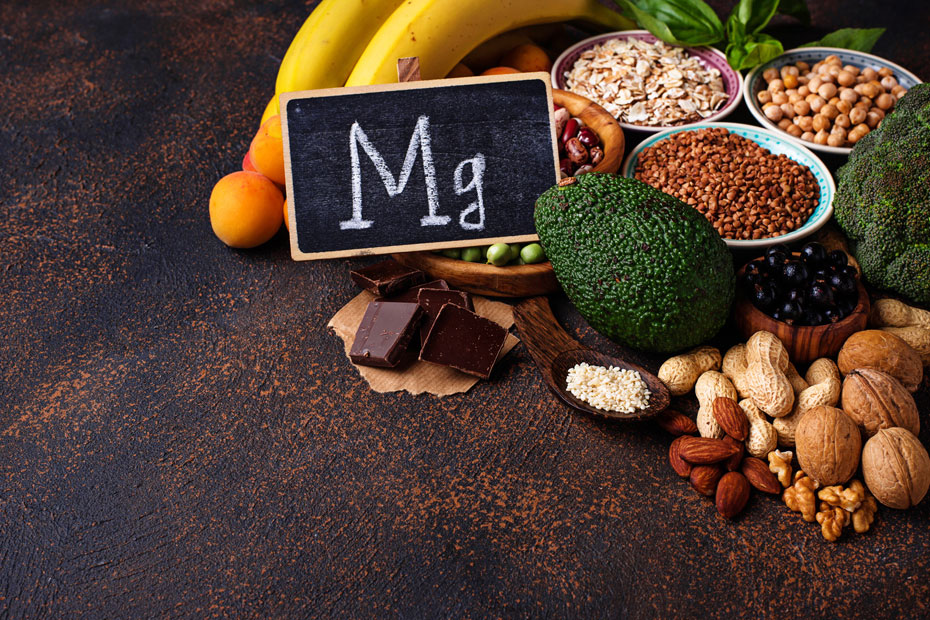
Which foods are good for the intestinal flora?
8 February 2021
What tea to drink? Discover the different teas and their benefits
24 December 2021An element playing a major role in the balance and proper functioning of the body, magnesium holds an important place that aligns with calcium. It is an essential mineral for the health of bones and teeth, as it helps optimize their fixation, while also acting on muscle function.
Beyond that, magnesium is a useful element to avoid intellectual fatigue. Given that the body does not produce magnesium, while this trace element is necessary for the proper functioning of the body, it must be obtained from food. Discover, therefore, the foods richest in magnesium, and learn how to recognize deficiencies.
What are the symptoms of magnesium deficiency?
Magnesium is involved in more than 300 reactions in the human body, hence a deficiency can be critical. So, what are the signs that your body is lacking magnesium?
A magnesium deficiency can manifest as nervous and muscular hyperexcitability in the individual. Tensions can then occur in the arms and legs, and even worse, muscle contractions. Cramps and tingling are all signs of deficiency. The same goes for an exaggerated sensitivity to stress, which can be accompanied by arterial spasms.
A magnesium deficiency can also lead to frequent insomnia, a significant increase in heart rate, as well as anxiety. It can be the cause of certain allergies and migraines. Similarly, it can lead to dizziness, proven emotional sensitivity, and mental and muscular fatigue.
It is, therefore, more than important to address the lack of magnesium, and in particular to establish a balanced diet with a sufficient daily intake of magnesium.
Which natural foods contain the most magnesium?
Foods are recommended to address a magnesium deficiency especially since they are better assimilated by the human body. Below is a list of foods containing a high magnesium content to avoid stress, cramps, and fatigue.

1 – Mineral Water
Mineral water is among the foods richest in magnesium, with some variations in content depending on the brand. Hépar, with 110 mg per liter, is known as the mineral water richest in magnesium. Contrex provides 86 mg per liter, while Arvie, Quézac, or Badoit provide 85 to 95 mg of magnesium per liter.
2 – Pumpkin Seeds
Consuming 100 grams of pumpkin seeds provides the body with 550 mg of magnesium, in addition to proteins and healthy fats. You can add them to your bread, biscuits, cakes, salads…
3 – Oil-packed Sardines
Contrary to popular belief, oil-packed sardines can be an excellent source of magnesium. Consuming 100 grams of sardines provides 467 mg of magnesium. The magnesium content is even higher when they are consumed canned in olive oil.
4 – Green Vegetables and Legumes
Eating green vegetables daily is an effective way to meet magnesium needs. Everything is allowed to vary your dishes: Brussels sprouts, spinach, sorrel, chard, peas, and others. For example, 92 mg of magnesium can be found in a 200-gram serving of spinach.
Consuming dry vegetables and legumes can also meet daily magnesium intake. The choice varies among white beans, split peas, or lentils, which can provide 64 mg of magnesium for 200 grams consumed.
5 – Nuts and Seeds
Nuts and seeds are excellent sources of magnesium. The richest are walnuts with a rate of 376 mg per 100 grams, or almonds which have a content of 250 mg per 100 grams.
6 – Cocoa
Chocolate is also a good source of magnesium. Indeed, 100 grams of cocoa provides the body with 376 mg of this mineral. The value is 170 mg if consuming 100 grams of dark chocolate with a cocoa content of at least 70%.
7 – Seafood
Seafood also turns out to be excellent sources of magnesium. Oysters, clams, and whelks are the richest, knowing that 410 mg of magnesium can be found in 100 grams of seafood.
8 – Spices
Spices are also known as a good source of magnesium. You can cook spicy dishes to boost your daily magnesium intake. Know that 100 grams of coriander can provide up to 200mg of Mg. The same portion of ginger provides the same rate.
It is important to note that certain products limit the absorption of magnesium, hence the interest in avoiding them as much as possible. This is the case with stimulants, including alcohol or nicotine. It is also known that certain medications are very demanding in magnesium. Their consumption can then lead to a magnesium deficiency. Among them are antibiotics, laxatives, and diuretics.
Magnesium-based Dietary Supplements

Indeed, it is better to prioritize a suitable diet to get enough magnesium. However, in the case of a very severe deficiency affecting the immune system, it is preferable to take dietary supplements, or even undergo a magnesium cure.
Magnesium supplements available in drugstores and pharmacies come in the form of magnesium salt. This is magnesium combined with another mineral. This format facilitates the mineral’s absorption by the body and optimizes its stability.
Which dietary supplement to choose?
It is preferable to opt for a supplement with high bioavailability. This is the proportion of the mineral that will enter the bloodstream. The higher the bioavailability, the higher the intake. Among the dietary supplements with the best bioavailability rates are:
1 – Marine Magnesium
As its name suggests, it is obtained by evaporating seawater. This natural form of magnesium is easily assimilated by the body. In addition to providing an energy boost, it also acts as a detoxifier, regulator of blood pressure and blood sugar levels. It also soothes tensions in the nerves and muscles.
2 – Magnesium Bisglycinate
This form of magnesium is not natural, yet it has excellent bioavailability. The body absorbs it very easily. Unlike other Mg sources, it does not have laxative effects.
3 – Magnesium Malate
This also has significant bioavailability. Its advantage is that it does not irritate the intestinal lining. It contributes to the colon drainage and is also beneficial for the kidneys.
Whatever dietary supplement you choose, you need a medical prescription to avoid mistakes in dosage and treatment duration.
Adopt a magnesium-rich diet for your well-being
Magnesium plays a crucial role in many bodily functions. At DDG Clinic in Brussels, we help you integrate magnesium-rich foods into your daily diet. Discover how nuts, seeds, leafy green vegetables, and whole grains can improve your health and energy.






